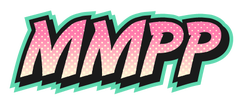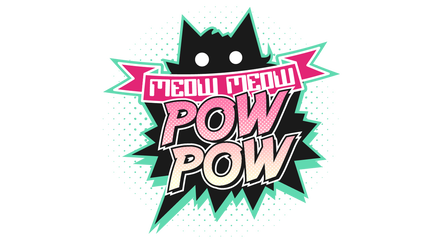|
Sean Lynch is a writer and editor who has published five books of poetry, including his newest collection, Halo Nest: Poems on Grief. The book is a reflection on his journey with grief before, during, and after his mother's dying of cancer in 2017. When did you start writing the poems featured in this collection, and throughout how long of a time period? What is the first poem you completed in the collection and the most recent? Emotionally how do these poems compare to one another? Some of these poems, such as the poems about Ireland, were written long before my mom was even diagnosed with ovarian cancer in 2016. I included them because I have long had a sort of obsession with death. I started writing poetry as a teenager in order to deal with existential angst. When I traveled to Ireland in 2013 and explored the rural western countryside, I felt this profound, bittersweet sadness at the beauty of the landscape and its desolation due to the legacy of an Gorta Mór. My mother was extremely proud of her Irish heritage, and taught me Irish songs and poetry growing up, so I had this connection between her and Ireland. There was an intergenerational conduit of grief that generated my interest in poetry and led me to write poems in order to deal with my mother's death. That being said, these poems span about a decade of writing, rewriting, and editing. It's hard to tell which poem was the first completed because I spent years going back to them and making both major and minor changes to them. "Of Famine Roads" was probably the earliest started as it was based off of notes I took while I was in Ireland and inspired by the poem "The Famine Road" by Eavan Boland. The last one I completed was "South Philly Casualty," which is about the murder of my great grandmother in 1980 and inspired by the Seamus Heaney poem about the Troubles called "Casualty." In regards to the sequencing of the poems, what was the intention behind their order? Way back in 2013 the editor of my first poetry collection, Alex Marshall, suggested that I sequence the book to follow what he called an “Orphic structure,” after the journey that the mythical Greek poet Orpheus took down to the underworld to bring his wife back from the dead. We all know that he ultimately failed because he looked back. I tried this technique again with Halo Nest and it seems to work, especially because I wanted to experiment with having a non-linear sequence due to grief’s tremendous impact on your psychological state of being. There’s moments where you can feel so disassociated from reality while grieving that time does not feel like it’s chronological. Which of the poems do you feel is the emotional center of this collection? I tried to make it so that not too many of the poems were overly emotional. The one where I really let loose and didn’t edit it to the point where it was from a detached perspective was “Etymology of a Nightmare.” I barely edited the poem. It’s just an unloading of emotion, although in the end there’s an acceptance, so I think that it could be seen as “the emotional center,” even if it isn’t actually the central poem (nor is it a well-crafted one in my opinion). Etymology of a Nightmare In my dream you were dying. I didn’t know yet that you are dead. In my dream you rested. I sat by you in an unfamiliar room in my dreams I watch you die again and again, I experience the worst pain I have ever experienced which wasn’t my pain but bearing witness to the pain my mother felt as she died and I dream again and again every night again and again her death in a different way all slow quiet nightmares. In my dream you were dying and I woke to google the etymology of nightmare and stared at the results which say “Middle English (denoting a female evil spirit thought to lie upon and suffocate sleepers): from night + Old English mære, incubus.” And I think of the words god and death and again I experience the worst pain then try to shut it out and my body rests and your body rests and my sleep’s suffocated by your absence and I think of my ancestors and how I speak their conqueror’s language and how many mothers of my ancestors have died in my dream all of my ancestors are dying. I have betrayed their languages by speaking the imperialist language but from modern to middle to old English I cannot express how much pain there was in your breath. I cannot express the starvation in your stomach. I cannot express the thirst in your throat. I can only convey your death through stating the inability to do so in my dream you die, in my dream you are dying in my dream you died, in my dream you have died in my dream you were dying. You are dead and it’s not a nightmare. How did the process of putting together this collection affect you? It was cathartic in certain ways. I began putting it together as a chapbook not long after my mom died, but didn’t seriously start working on it as a full length collection until the height of quarantine in the beginning of the pandemic. We were all undergoing a collective sort of grief back then as the world came to a halt and people were dying. At one point the manuscript was much bigger and included pandemic poems that I wrote at the time, but I cut those out later to make the book more focused. I find that when I’m going through my most difficult periods of my life, I turn to reading and writing poetry. I sincerely believe it has a healing effect. I find that when I’m going through my most difficult periods of my life, I turn to reading and writing poetry. I sincerely believe it has a healing effect. Where did the title come from?
Water is another big component of the book. The Delaware River, Cooper River, and the Atlantic Ocean all play major roles. Besides the obvious metaphors for movement in grief, these bodies of water reflect the importance of place and displacement. Flowers also appear throughout, including lavender, lilies, and roses, with different meanings. Baseball is an important theme throughout several poems. The sport spans the breadth of time and holds so much more meaning and gravity than any other sport, in my opinion. It’s a poetic game, with no clock involved (although there is a pitch clock now). People think it’s boring, but it’s the moments of tranquility in the game that can ironically hit hard, as well as the connections between generations. So many moments of sitting with a loved one who is terminally ill, watching a baseball game on a small television. So many moments of being at the ballpark and being lost in memories while watching the game. Poets shy away from nostalgia and sentimentality nowadays, and there are good reasons to do so technique-wise, but baseball has that mystique. Maybe I am too sentimental, and this book is too sentimental, but maybe not. Collections pertaining to grief can often become overwhelming when read in one sitting. Do you feel like there are moments of levity and lightheartedness within these poems? There are a couple of moments of levity, like when my grandfather called my teenage mother’s boyfriend Jesus because he was a dirty hippy, or when my grandmother called my cousin a bitch while we were sitting around my mom’s dead body in the living room. I also think the book ends on a happy and hopeful note with the last poem, “Infinite Meridians.” In the creation of the poems, how did you separate the emotional background of the work and the surgical aspect of editing poetry? I separated them through time. As I said before, these poems were edited over several years, so time itself helped detach the voice. I cut out so much from these poems, but I also expanded on them a lot. It just took years of coming back to them. If you could pick a song that represents this collection what would it be? Waltz #2 by Elliott Smith. It’s a heartbreaking song about Smith’s complicated relationship with his mother. The verses of the song do not apply to my complicated relationship with my mom, but the chorus, “I’m never gonna know you now but I’m gonna love you anyhow,” was how I felt when I missed her most. My mom and I argued a lot, and I do have many regrets about things I said and did to her, but we were also really close. The guilt I felt about some of things I said and did made grief much more difficult. Everyone says, oh you can’t think about that sort of thing, but that’s all I could think about for a long time, no matter what I tried. When someone dies, people often look at them or the past through rose colored glasses. I had the opposite problem. Eventually my guilt faded and I do think about the good times now. It just took awhile. Eventually my guilt faded and I do think about the good times now. It just took awhile. How are you hoping this collection is received? What do you want readers to take away from the collection? To put it simply, I’m genuinely hoping that it helps other people deal with their grief. I’m nervous about my family reading it though.
Comments are closed.
|
AuthorOur fabulous blog team Archives
June 2024
CategoriesAll 12 Songs Art Art And Athletes Book Review Chorus Blog Date This Book Game Of Narratives Guest Blog Letter From The Editor Lifehacks Movies Of 2019 Music Pup Sounds Smackdown Strive For 55 Summer Playlists |





 RSS Feed
RSS Feed